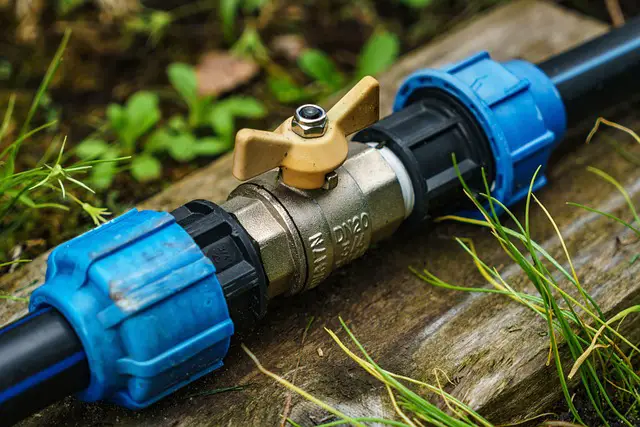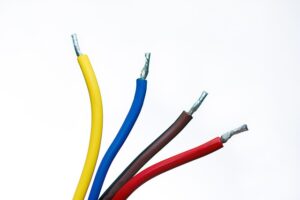Electrical installations require careful planning and adherence to safety standards. One common question that arises is whether it’s permissible to run electrical conduit next to a water line.
Yes, it is possible to run electrical conduit next to a water line, but it must comply with safety regulations and best practices.
In this article, we’ll explore the factors to consider, potential risks involved, and best practices for installation.
Understanding Electrical Conduit
An electrical conduit is a protective tube used to house electrical wires, providing insulation and shielding from external elements.
It serves as a conduit for routing and protecting electrical wiring, ensuring safety and minimizing the risk of damage or electrical hazards.
Common types include metal conduit (such as rigid metal conduit or electrical metallic tubing) and non-metallic conduit (such as PVC or flexible conduit).
can you run the electrical conduit next to the water line?
Running an electrical conduit next to a water line is permissible if certain conditions are met. It is essential to adhere to safety regulations and best practices to ensure a safe installation.
Electrical codes provide guidelines for the allowable proximity between electrical conduit and water lines. These codes specify safe distances and requirements to minimize the risk of electrical hazards, water damage, and corrosion. Compliance with these codes is crucial to ensure the safety and integrity of the electrical and plumbing systems.
However, there are potential risks and concerns associated with running electrical conduits near water lines. Water leakage can damage the conduit and compromise the wiring’s insulation, leading to short circuits and electrical malfunctions. Corrosion can also occur, particularly in metal conduits, reducing their lifespan and increasing the risk of failures.
To mitigate these risks, protective measures should be implemented. This may include using corrosion-resistant conduit materials, applying appropriate coatings or sealants, and implementing waterproofing techniques at connection points. Proper insulation and grounding techniques are also necessary to prevent electrical shocks.
Read also my article: Electrical Wire and PVC Plumbing Pipes: A Risky Combination?
Factors to Consider
Before deciding whether to run an electrical conduit near a water line, it’s crucial to consider several factors to ensure compliance with safety regulations and mitigate potential risks.
Electrical Code Requirements
Local electrical codes play a vital role in determining the permissible proximity between electrical conduit and water lines.
These codes specify safe distances and guidelines to prevent electrical hazards, water damage, and corrosion. Adhering to these requirements is essential to ensure a safe and code-compliant installation.
Safety Considerations
The safety of individuals and the integrity of the electrical system are paramount. Running electrical conduit near water lines can pose risks such as water infiltration, corrosion, and the potential for electrical shock.
These risks underscore the importance of carefully evaluating the placement of conduit in relation to water lines.
Potential Risks and Concerns
Running electrical conduit in close proximity to water lines presents several potential risks and concerns that need to be addressed.
Risk of Water Damage to Electrical Conduit
Water leakage from nearby pipes or plumbing systems can damage electrical conduit and compromise the integrity of the wiring within.
Over time, exposure to water may lead to insulation deterioration, short circuits, and electrical malfunctions.
It’s crucial to assess the vulnerability of the installation to water damage and take appropriate precautions.
Corrosion Issues
The presence of water and moisture in the vicinity of electrical conduits can accelerate corrosion, especially in metal conduits.
Corrosion weakens the conduit, reduces its lifespan, and increases the risk of electrical failures. Protective measures such as corrosion-resistant coatings or non-metallic conduits may be necessary in corrosive environments.
Impact on Electrical System Integrity
Installing electrical conduit near water lines may introduce unforeseen complications during maintenance or repairs.
Accessing the conduit may require shut-off valves, draining water lines, or taking additional precautions to ensure the safety of both the electrical and plumbing systems. This can lead to increased costs and inconvenience.
Risk of Electrical Shock
Electrical shock is a significant concern when working with electrical systems near water sources. Proximity between electrical conduit and water lines increases the potential for electrical current to flow through water, creating hazardous conditions. Proper grounding and insulation measures are critical to mitigate this risk.
Read also my article: White PVC Electrical Conduit: A Safe and Stylish Solution.
Best Practices for Installation
To ensure a safe and compliant installation, certain best practices should be followed when running electrical conduit near water lines.
Recommended Installation Methods
Consulting with a qualified electrician is highly recommended to assess the specific requirements of your installation.
They can provide guidance on appropriate conduit types, location, and necessary safety measures based on local electrical codes.
Following their recommendations ensures a professional and code-compliant installation.
Use of Protective Measures
Protective measures are crucial to safeguard electrical conduit near water lines. These may include using corrosion-resistant conduit materials, applying appropriate coatings or sealants, and implementing waterproofing techniques at connection points. Such measures help minimize the risk of water damage and corrosion.
Insulation and Grounding Techniques
Proper insulation and grounding are essential components of electrical safety. Insulating electrical conduit, especially when in close proximity to water lines, helps prevent water infiltration and protects against electrical shorts.
Grounding the electrical system according to code requirements further enhances safety by providing a controlled path for electrical current.
Professional Advice and Compliance
Given the potential risks and complexities associated with running electrical conduit near water lines, it is crucial to seek professional advice and comply with local electrical codes.
Importance of Consulting with an Electrician
An experienced electrician possesses the expertise to evaluate the specific requirements of your installation, ensuring compliance with electrical codes and regulations.
Their knowledge can help identify potential risks and propose appropriate solutions to mitigate them. Engaging an electrician is a prudent step towards a safe and efficient installation.
Compliance with Local Electrical Codes and Regulations
Adhering to local electrical codes and regulations is essential to ensure the safety and legality of electrical installations.
These codes provide specific guidelines on allowable distances between electrical conduit and water lines, grounding requirements, and other critical safety considerations. Compliance promotes a high standard of electrical workmanship.
Conclusion
Running electrical conduit near water lines requires careful evaluation and adherence to safety guidelines.
While it is possible to install conduit in close proximity to water lines, it’s crucial to consider factors such as electrical code requirements, potential risks, and best practices for installation.
By following professional advice and complying with local regulations, a safe and reliable electrical installation can be achieved.




